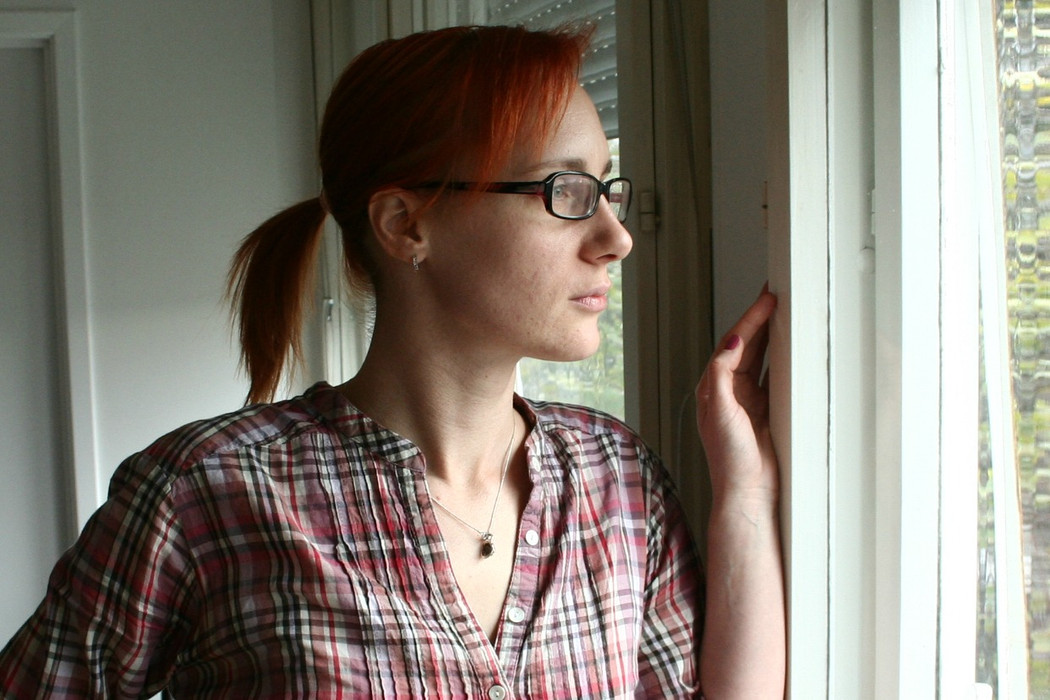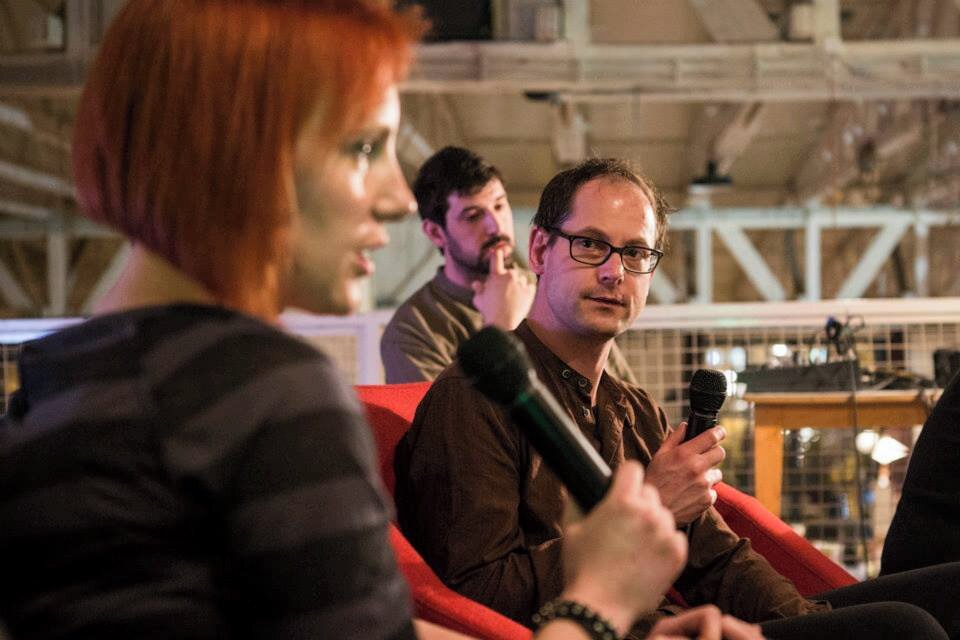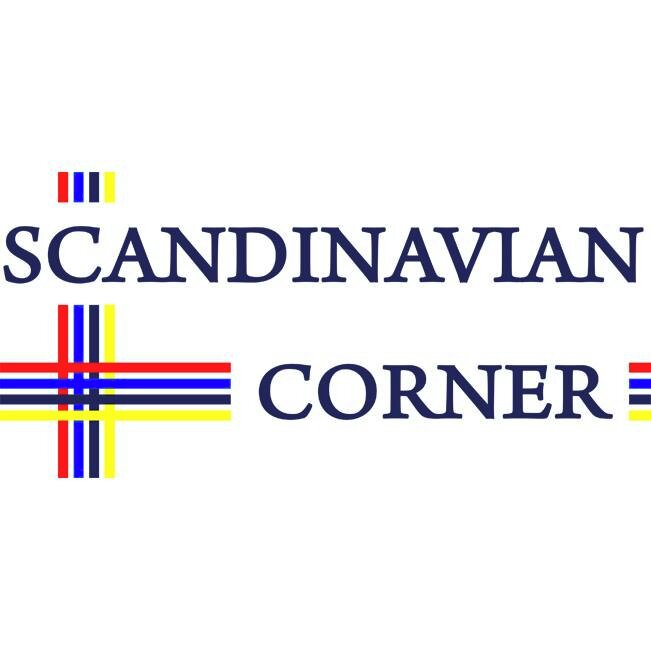Translator of the month for April: Sofija Vuković
Translators play the most important part in spreading Norwegian literature out into the world. Their work is of crucial importance and in order to shed some light on their work, NORLA has started the interview series “Translator of the month”, where we can get better acquainted with translators of Norwegian and their hard work that makes Norwegian literature available in all the world’s languages.

Translator of the month for April is Sofija Vuković that translates from Norwegian to Serbian. She has recently translated Mikal Hem’s Perhaps I Can Be a Dictator (Kanskje jeg kan bli dikator). The book received considerable media attention in connection with the recent book launch where the author himself was part of several events. Sofija is also working for the organization Scandinavian Corner in Belgrade, that among other things has founded the project “Nordic Reading Corner’.
How did you end up as a translator of Norwegian literature to Serbian?
I’ve always been interested in languages, but I chose Norwegian a bit randomly. It seemed boring to study English, and the other major languages (French, German) I did not have enough knowledge of, and it was not possible to start from the very beginning at the University. I became interested in Nordic culture, among other things, because of various books I had read and I heard that the offer at the University was quite good. It seemed exotic and exciting.
Literary translations were my passion, but there was not that much work to get in that area in the beginning. I got a couple of smaller translation jobs while I was still at the University, but afterwards it was mainly document translations on various international projects, including one with the Norwegian police, that I worked with until 2010. I then received an offer from the publisher Karpos Books to translate a book from Swedish, and then Sex og religion by Dag Øistein Endsjø. It was the first major work I translated, and my translation into Serbian is also the first foreign edition of the book.
After that it became easier. Once you have some published translations you get offers all the time. I do many other things as well, I work as a Norwegian teacher and authorized legal translator, but the books are still what I like to do best.
Can you give an example of a translating job that has been particularly difficult or particularly funny?
It was one of my first translations, a collection of Norwegian nursery rhymes called Lang, lang rekke, which was translated into Serbian by a group of translators from the University. It was in my last year of studying. It is difficult to translate poems, you must use your imagination and know your own language very well and you also have to have some poetic talent. Fortunately I was very fond of nursery rhymes when I was little and master that kind of language. We also worked a lot together in team and helped each other with difficult rhymes and verses. All my colleagues were very good, especially the staff at the University. Finally the publishing house let a Serbian poet edit our poems and I was proud when I saw that my translations had not been changed that much.
You are now in the spotlight with the Serbian translation of Per haps I Can be a Translator (in Norwegian: Kanskje jeg kan bli diktator), and author Mikal Hem was recently in Serbia for the book launch, and received a lot of press coverage during the stay. Can you tell us more about the launch?
Mikal and I got to know each other at the NORLA seminar for non-fiction translators in November 2012, when the book had just come out. I liked it very much and thought it could be interesting for the Serbian market. I had already collaborated with Zavet – the Serbian publishing house, and they were interested in publishing it. Since autumn 2013 I have also worked for Scandinavian Corner, which I shall tell you more about below, and we thought it would be a good idea to invite Mikal to visit Belgrade. Mikal and the publisher liked the idea, so it was fairly easy to arrange, and we greatly appreciate the support we received from NORLA as well.

The launch was very successful. We had two great literary evenings, one in UK Parobrod, where Scandinavian Corner is located, and one at Savamala Book Fest, which is a brand new book festival in Belgrade. Both evenings had many visitors, people were enthusiastic and asked many interesting questions. I think that Mikal’s book highlights many matters concerning dictatorship, and he is very good at writing about serious things in a subtly ironic manner. Readers here like political satires; it’s something that helped us get through difficult times when we were under dictatorship. I believe that is the reasons why the book got so much attention and interest. The book is also easy to read and that makes it accessible for a bit larger audience. There were a lot of different people at the events and I was particularly happy to see many young people. All of us are very happy and satisfied, both Mikal, the publisher and we at Scandinavian Corner.
So you work for an organization named Scandinavian Corner, which operates a project called Nordic Reading Corner. Can you explain the background to the creation of Scandinavian Corner and tell us a little about the work you do?

Scandinavian Corner is an organization that works with promoting Scandinavian culture and values, such as tolerance and respect for diversity and human rights. It was founded by my colleague Milica Nikolic, and human rights lawyer Milena Banic in September 2013 and since then we have carried out many activities such as conversation workshops, movie nights with accompanying discussions and lectures.
We started with the project "Nordic Reading Corner” in September. We have collected over 600 books so far, both in Scandinavian languages and in Serbian. The library was opened 12.12.2014 and at the same time we also received financial support from the Norwegian Embassy in Belgrade. The books can be borrowed by our members, who also get free access to all our activities: film evenings, lectures, discussions, literature evenings etc. Our goal is to develop Scandinavian Corner into an important cultural center, where everyone who has an interest in and likes Nordic culture can find a cultural offer that suits him or her.
After we received financial support, it became easier to work with regards to arranging events, and now we have the possibility to do bigger things, like Mikal’s book launch. We also organized a few major events in collaboration with the embassies, such as Saint Lucia celebration with the Swedish Embassy and Kalevala day with the Finnish. Last weekend, we were visited by the Norwegian jazz band One Trick Pony, who held a concert at UK Parobrod where we have our office. We have plans to bring many interesting guests from Norway and other Scandinavian countries, and some have already said yes, but I do not want to reveal too much here. Anyone who is interested in what we are doing can follow our website www.skandinavskikutak.org and our page on Facebook.
How do you find the books you translate?
It is mostly the publishers who find the books that they want to publish and then they contact me. Sometimes I suggest something that I think might be interesting for the current publisher, and sometimes, if I’m particularly interested in a book that I would like to translate, such as Kanskje jeg kan bli diktator, I find a publisher who is interested. These books I often find randomly. Mikal’s book was presented to me, as I mentioned, on the NORLA seminar, and the same applies to Jorgen Gaares book Pippi og Socrates, which I also would like to translate. I am currently a little busy with other projects, but I hope to find a publisher who will publish it. Otherwise I hear about good books from Norwegian friends, or others who like Norwegian literature, publishers give me catalogs from book fairs, and I also seek online for something that would be interesting for me. There are also recommendations from NORLA, of course, and some of the Norwegian publishers who I have worked with are sending me their newsletters.
Do you have a certain Norwegian book that is close to your heart? In that case, why is it special for you?
I am very fond of Jon Fosse, especially the plays Nokon kjem til å komme (Someone is going to come) and Draum om hausten (Autumn dreams). There is a melancholy in Fosse’s works that hits me right in the heart. Also, I think his plays can be incredibly powerful on stage, if the actors are good. When it comes to novels, I love Jo Nesbø, I’m completely hooked on his crime books. It is not only because they are exciting, I think that he creates original characters and tells a lot about Norwegian society in a special way that I like. Nesbø is a punk and rebel, and I like that. In Serbian his books are released in a wonderful translation of my colleague Jelena Loma. Rødstrupe (The Redbreast), is the best so far in my opinion. If we talk non-fiction, I must mention Knut Nærum’s Norsk litteraturhistorie – fritt etter hukommelsen (Norwegian literature – free from memory) that was both hilarious and very educational for a young student of Norwegian, that I was when I read it. I have love that kind of humor, satire and irony, and Nærum is a master in that area. I laughed out loud when I read it, from the beginning to the end.
See media coverage from Mikal Hem’s book launch and visit:
Politika (Serbia’s largest and most important newspaper)
Blic
Dnevni akter
The Norwegian Embassy in Belgrade
Bookvar
Savamala Book Fest (from approximately 4:40)
This interview has been translated into English by Scandinavian Corner (Skandinavski Utak) in Serbia, and orignially published on their website.
Click here to read the original interview in Norwegian.


